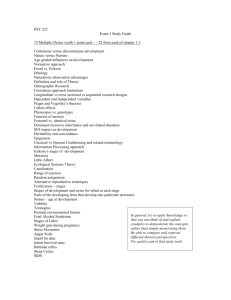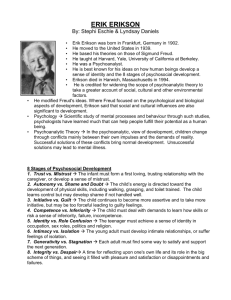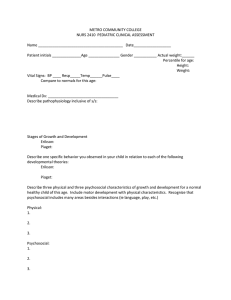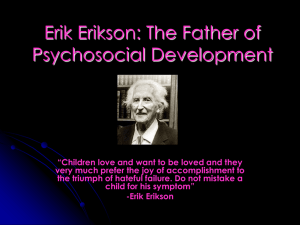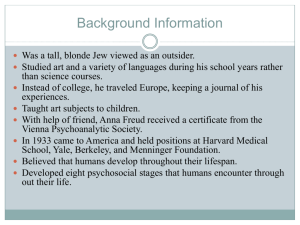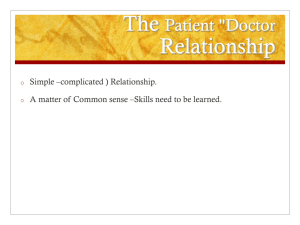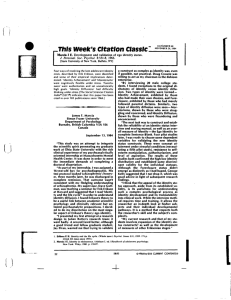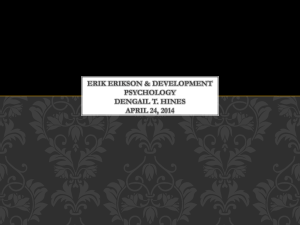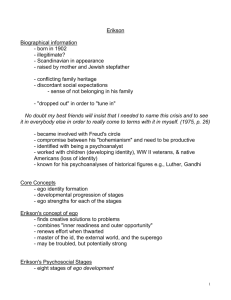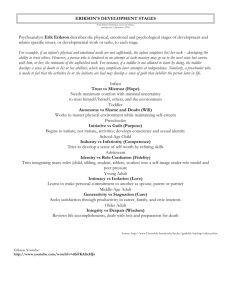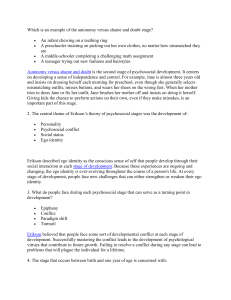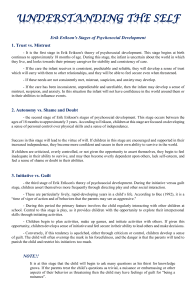Erik Erikson - Personal Web Pages
advertisement
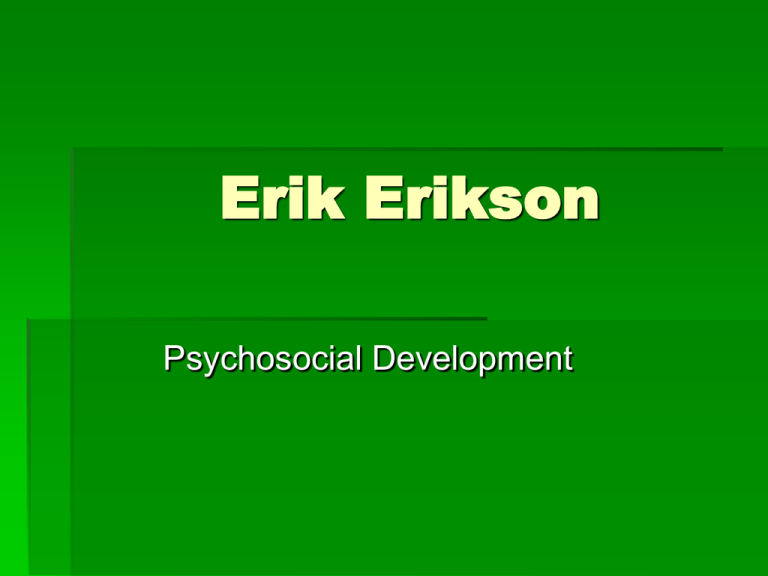
Erik Erikson Psychosocial Development Erikson’s Beliefs (Assumptions) Major difference from Freud relates to the concept of EGO Ego is present from birth, conflict free, constantly in development (lifespan). Ego is in transition, conflict arises between individual and society (PSYCHOSOCIAL) Infant is interested in establishing interpersonal relationships which are adaptive Infant unconsciously driven toward pleasure (Freud) Psychosocial Stages Trust vs. Mistrust (0-18 mos.) Autonomy vs. Shame and doubt (2-3) Initiative vs. Guilt (3-6) Industry vs. Inferiority (7-12) Identity vs. Identity Diffusion (12-18) Intimacy vs. Isolation (20’s) Generativity vs. Stagnation (20’s – 50’s) Ego Integrity vs. Despair (50’s and beyond) Methods of Study Anthropological Observation Naturalistic observation of infants, adolescents, and adults in different cultures -- child rearing practices in different cultures - Psychohistory The synthetic application of psychology, anthropology, history and sociology -- analyzes a person's history -- What is Erikson’s Pedagogical Usefulness What can you learn from Erikson in the daily operation of your classroom? Can Erikson’s theory help to explain your student’s behavior?
